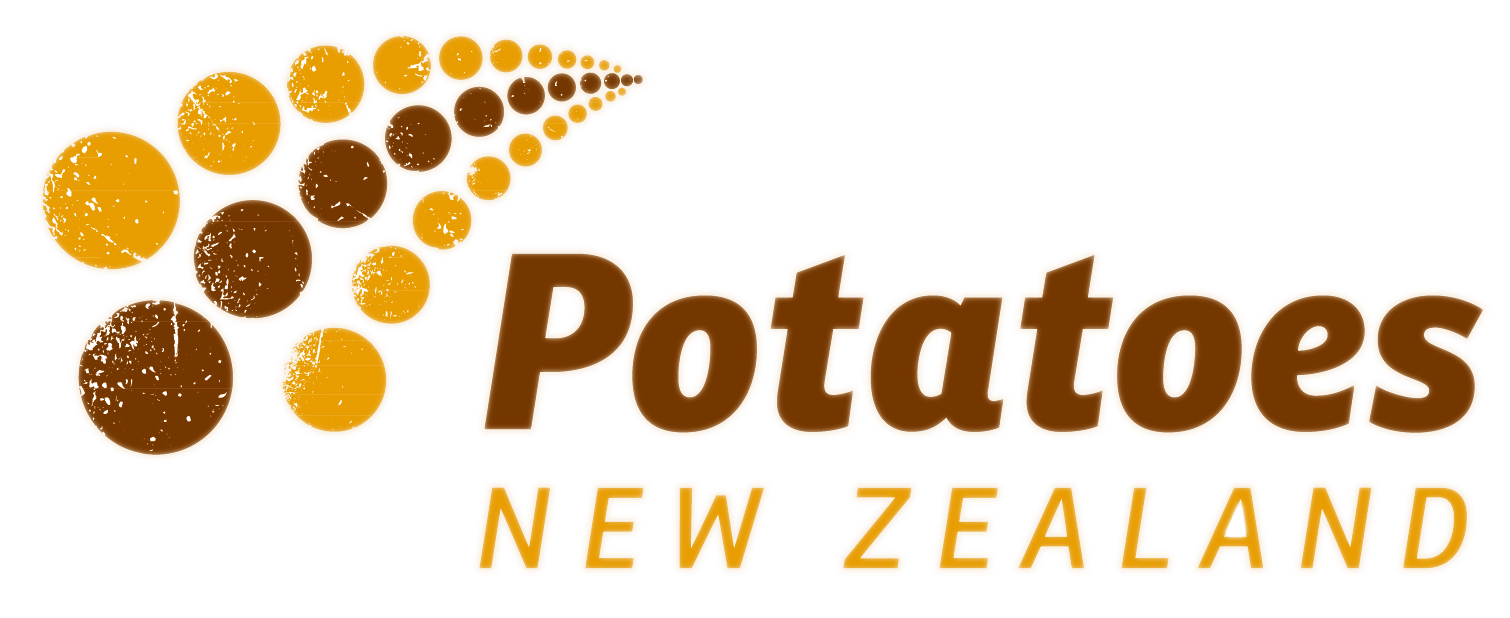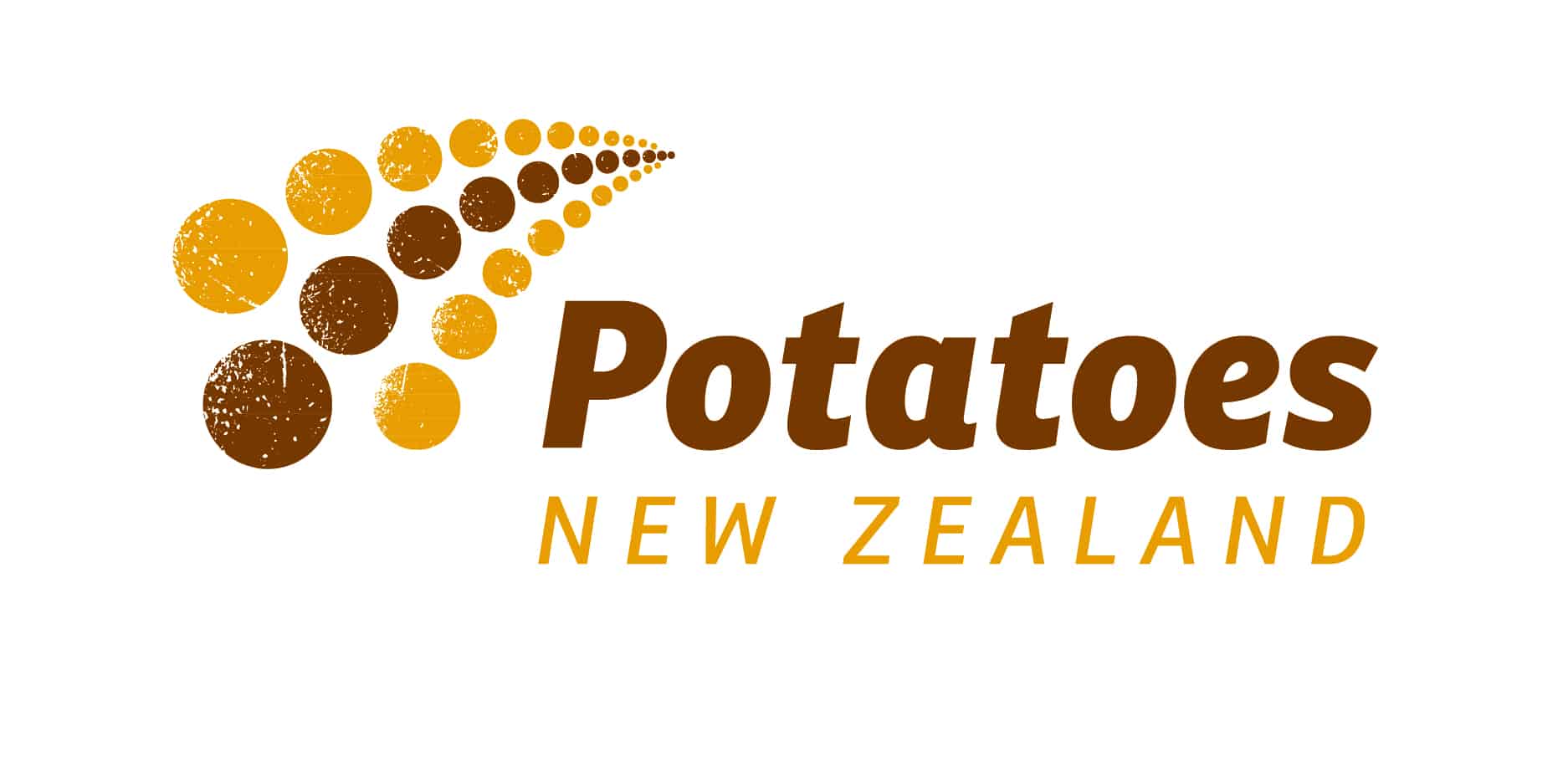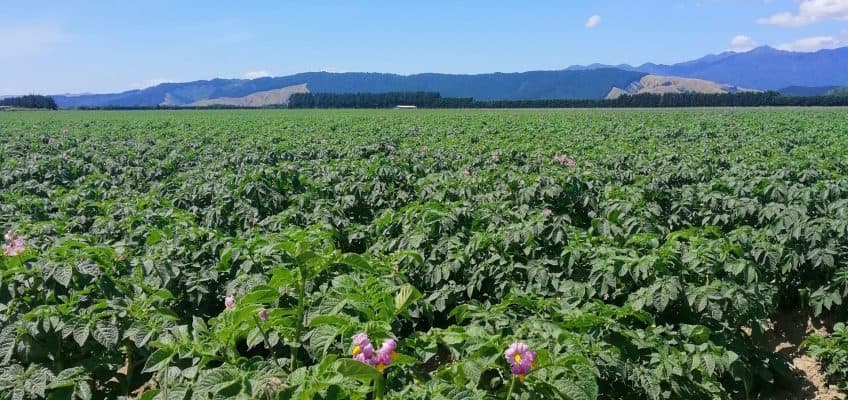By Gemma Carroll, PNZ Communications & Engagement Officer.
Featured image Chris Pescini’s potato field, Levin.
In February 2020, the Potatoes NZ board adopted a new strategic objective of zero net emissions by 2050. This is now one of 3 central objectives including doubling export value by 2025 and increasing domestic value by 50% by 2025.
PNZ are focussed on reducing emissions whilst continuing industry growth.
In September 2019, Potatoes NZ launched the Emissions Taskforce, underpinned by a multi-workstream project known as the Emissions Project (PNZ-79).
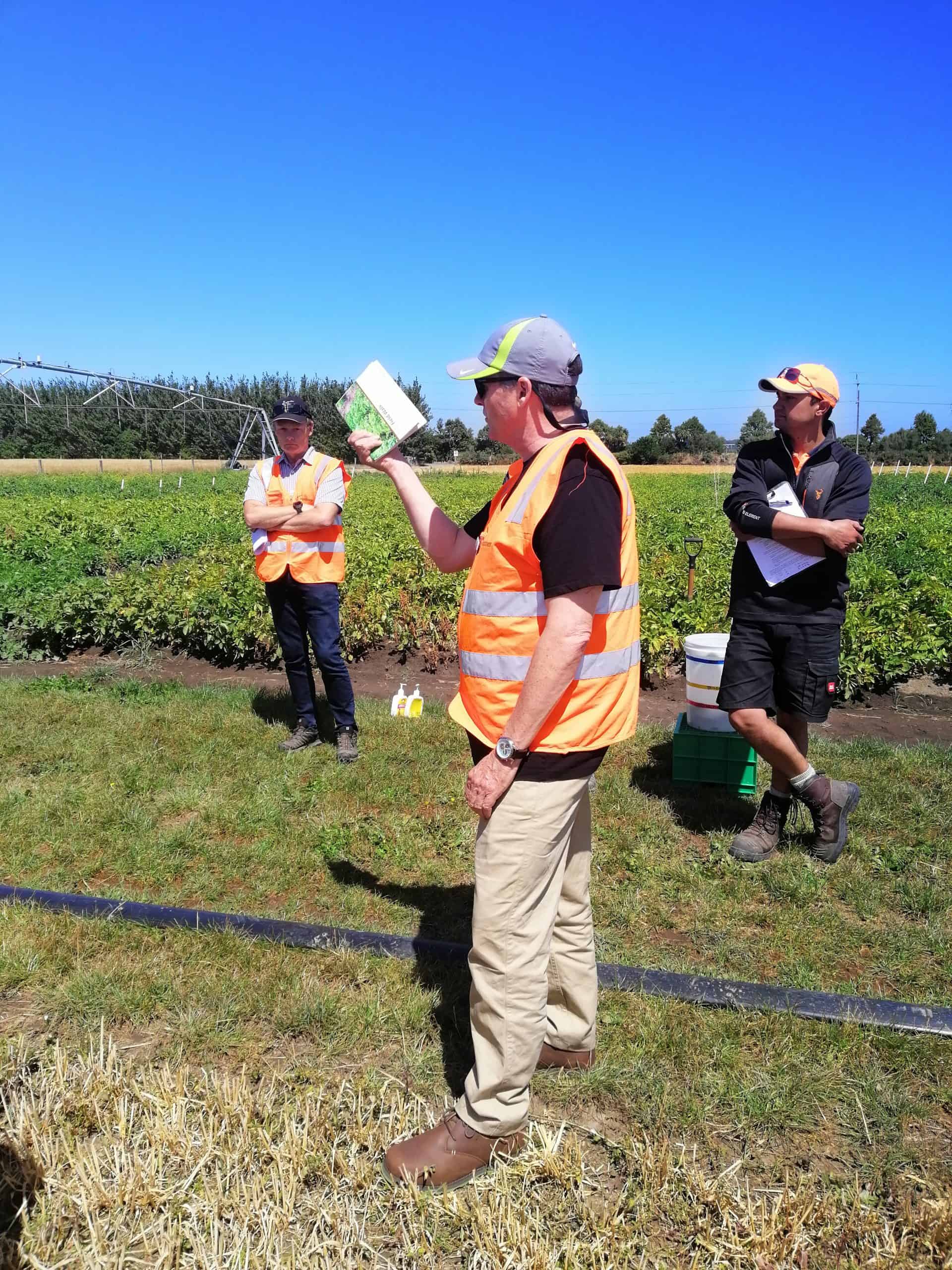
Chris Claridge, CEO of PNZ , updates on the project at Field Walks 2020
In the early months of 2020, we expanded and renamed the project; The Sustainable Vegetable Systems Project (SVS) to reflect the relevance to the vegetable sector overall, the expansion of our stakeholders to include leafy greens, onions and brassicas, and the adjusted focus of some workstreams, with the goal of eventually extending the tools and outcomes to all in the vegetable sector.
With Onions NZ, Vegetables NZ and Horticulture NZ now on board, we’ve applied for the MPI Productive Sustainable Landuse Funding, in what could become a multi-million dollar project to secure NZ vegetable production for NZ growers and consumers, while reducing our impact on the environment. The funding application has received positive feedback, however regardless of the outcome, this is a key priority for all our industries and we will work to ensure the project goes ahead. Potatoes NZ will lead the project with an independent project manager and a governance committee with representatives from all stakeholders, including MPI.
The SVS Project is a multi-stream nationwide project that will transition crop production to more sustainable land management practices while growing resilient communities and economies. The project data will inform industry and MPI on current practices, whilst helping develop new systems, strategies and tools to manage leaching. This will result in a tool or suite of tools to help growers implement good management practice, provide leaching assessments to regulators and may involve the adaption of existing tools, such as Overseer. We will build on existing management practices in industry codes of practice, and further equip growers with the tools and capabilities to address nutrient management risks identified in farm environment plans, which will help growers transition to a more sustainable future and maintain farmers’ license to operate.
Overseer currently predicts nitrate leaching and is used as a nutrient management tool by growers and councils to calculate nutrient loss. Currently Overseer is not informed by empirical data specific to New Zealand vegetable crops, growing conditions and management practices used by growers of potatoes, onions, brassicas and other field crops. This lack of data limits the ability to reliably use Overseer in these systems and in turn affects the trust that growers and regulators alike can have that farm practices are environmentally and economically sustainable.
As previously outlined, the project will analyse nitrate uptake and nutrient leaching, investigate nutrient modelling and validate Overseer predictions for potato and vegetable crops.
The overall aims of this project are:
- Maintain social license to operate for vegetable growers and industries
- Protect industries’ ability to grow, process and export products, while meeting environmental standards and maintaining international competitiveness
- Reduce the impact of crop farming practices on the environment and water quality, whilst maintaining grower license to operate through national, regional and farm programmes..
The outcomes of this project will be a greater understanding of nitrate and nutrient management and an informed means of measuring environmental impact based on sound scientific data. This will help growers improve their nutrient use efficiency through the adoption of good/or best management practices.
Plant & Food Research will be the primary research provider and are already heavily involved in trials. PFR will also provide modelling expertise and we will work with them to ensure research is translated into real impact for our industries. The project builds on work already done on Don’t Muddy the Waters and Future Proofing Vegetable Production by strategic partners Agrilink and Landwise. They will continue to be strategic partners and research contributors.
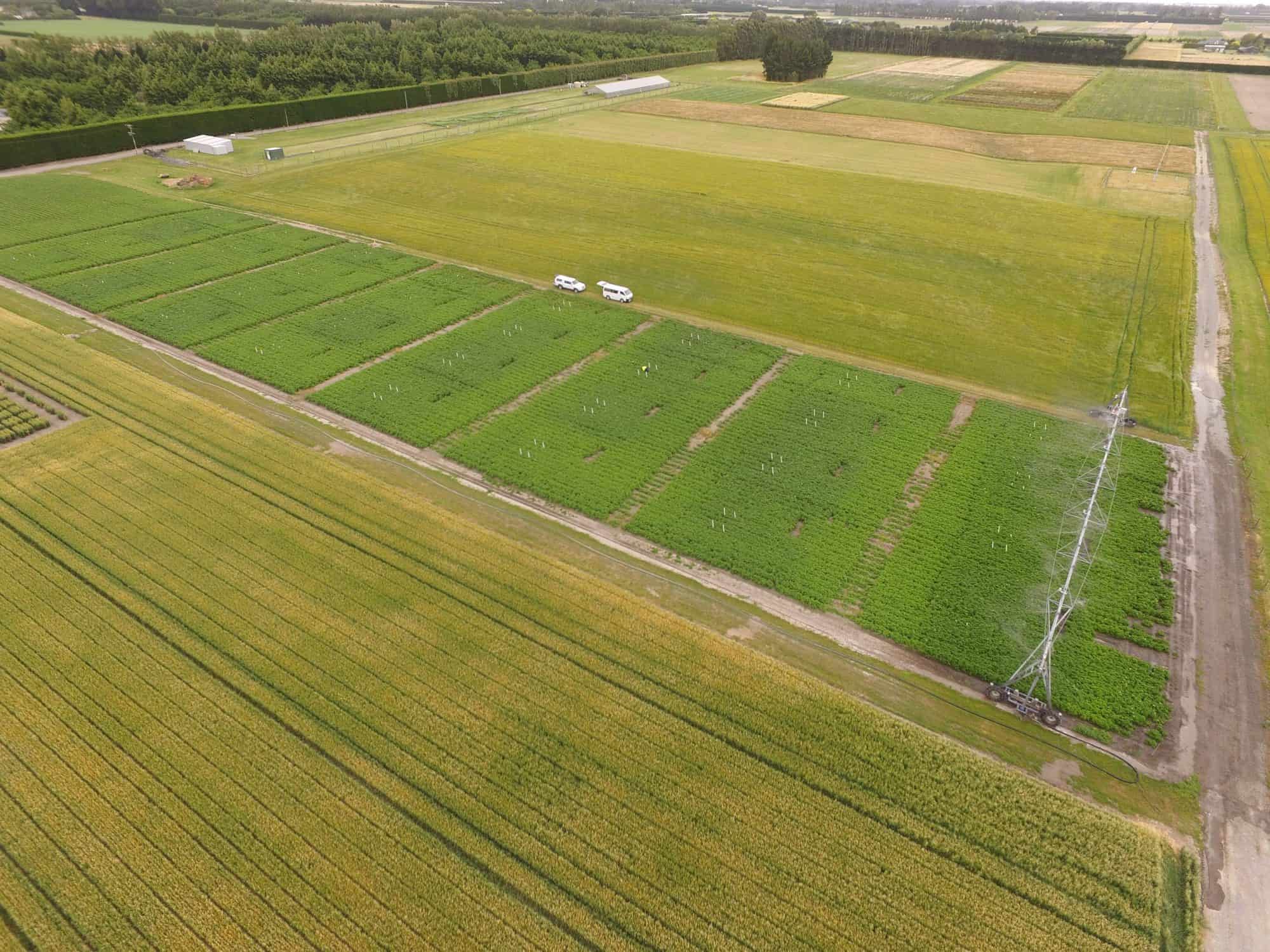
PFR field trial at Lincoln.
Our potato industry has a strategic goal of doubling exports from $130M to $250M by 2025, to do this we need to be have a social and regulatory license to increase our area planted by 30%. This expansion is driven by increased export of frozen French Fries, a value added market where New Zealand is the 9th largest exporter globally and is growing in emerging economies and regions such as South East Asia. To meet this market growth farmers need access to an additional 2500ha of growing ground and need to increase productivity. Suitable land access is not permanent, with rotational cropping current best practice for pest and disease management.
Reducing leaching and accurately managing leaching is key to maintaining and increasing access to land, meeting the Potatoes New Zealand growth strategy and ensuring New Zealanders have access to fresh, nutritious, locally grown vegetables.
This project will provide tools that can monitor and manage the impacts of vegetable growing, enabling growers access to productive leased land and pastoral farmers to diversify their land use options and income streams.
Potatoes New Zealand have observed the push to transition to more sustainable production practices and we’ve not sat on our laurels. We predicted that these new sustainable practices would require data based decision systems and support. Data based decision making will enable local and central Government to develop policy that supports and sustains industries and communities. Our project will enable growers to make sustainable decisions economically and environmentally.
Industry appetite, regulatory push, and knowledge extension and transfer will ensure sustainable practices are adopted and Government targets are met.
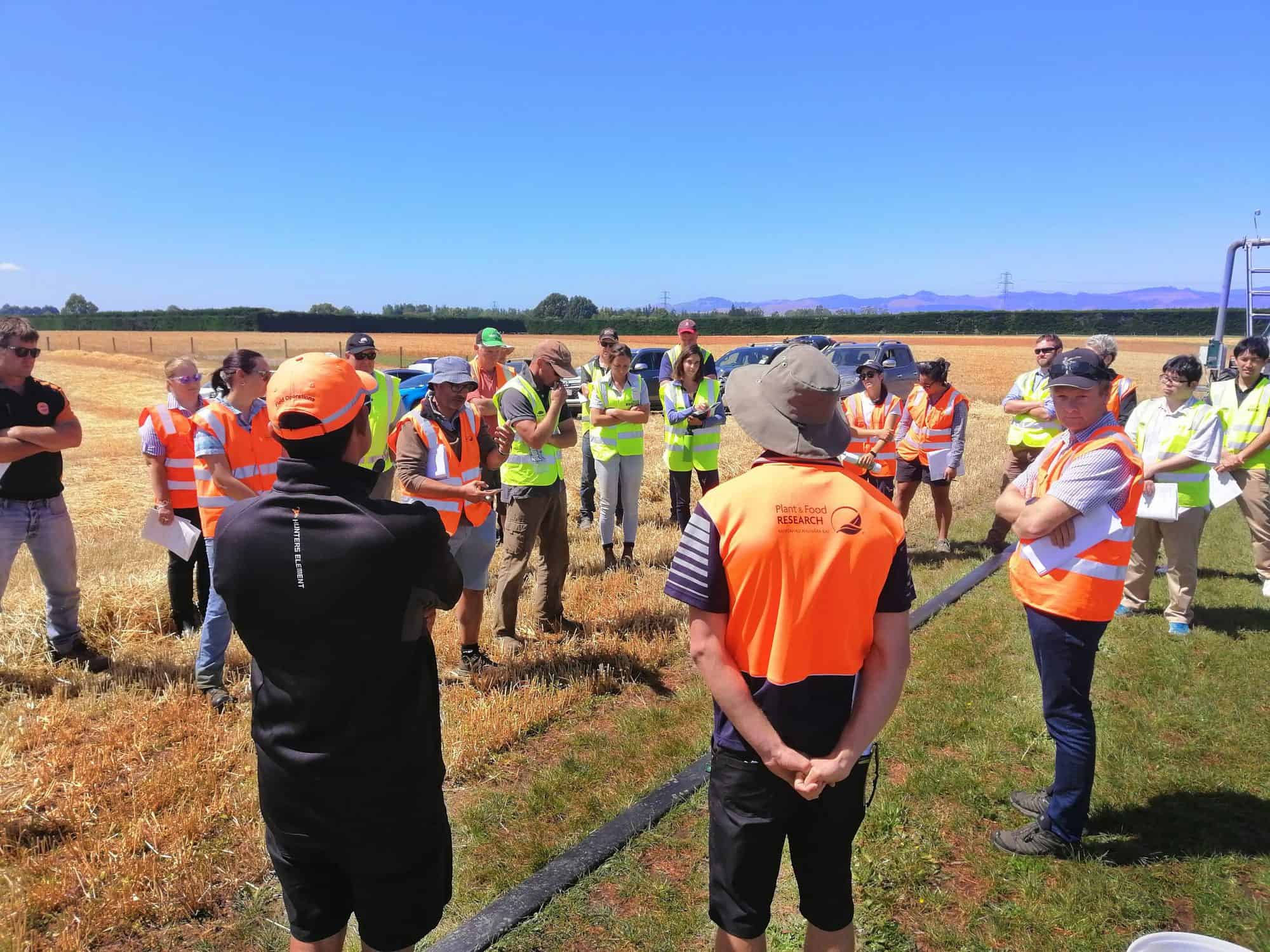
Canterbury knowledge transfer 2020.
Potatoes New Zealand has a strong track record of facilitating research and development. We have the capability and capacity to coordinate grower engagement and undertake field work. Under CEO Chris Claridge’s leadership we maintain a strong portfolio of research projects that delivers real impact to growers and the industry and Dr Iain Kirkwood, PNZ Technical Manager, has 35 years’ experience in the industry and manages the New Zealand’s seed potato certification, Research and Development and Biosecurity programmes.
Government investment in this project will enable expansion of our research for greater impact and applicability and benefitting multiple industries and groups within New Zealand.
This expansion includes:
- Increased regions within New Zealand for field trials
- Increased crop rotations and regions for controlled experiments
- Increased grower engagement and knowledge extension
- Expanded availability of tools and platforms across the sectors
- Increased data to inform current or new models
- Increased data to inform MPI and local Government bodies.
This project supports the Government’s vision for a productive, sustainable and inclusive economy.

PNZ protecting land, food and people.
